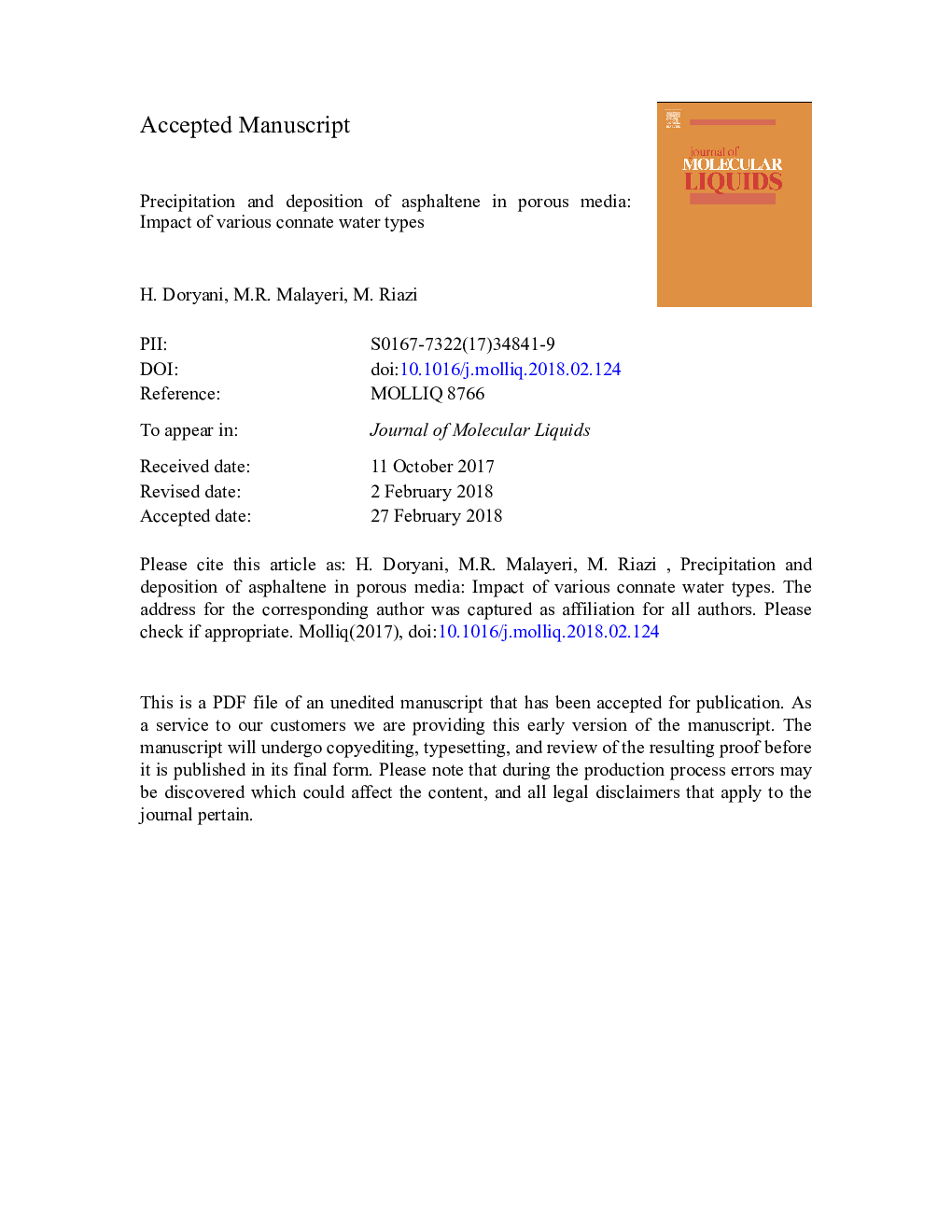| Article ID | Journal | Published Year | Pages | File Type |
|---|---|---|---|---|
| 7842658 | Journal of Molecular Liquids | 2018 | 23 Pages |
Abstract
The precipitation and deposition of asphaltene are among the least understood phenomena in upstream to downstream oil-related processes. The present experimental study investigated the impact of different connate water types on precipitation and deposition of asphaltene from synthetic oil solutions comprising of toluene, n-heptane with 5Â wt% of asphaltene in a uniformly patterned glass micromodel. To do so, different types of connate water including deionized water (DW) and brines such as CaCl2, MgCl2, KCl, NaCl, and Na2SO4 ranging from 5000 to 40,000Â ppm were investigated. It was found that the type of cations present in the brine would profoundly influence the precipitation of asphaltene, probably due to their higher affinity toward anionic components. Divalent cations were also found to cause much more severe asphaltene precipitation compared to monovalent cations. Connate water saturation of different brines was also found to have diverse impact on precipitation and deposition of asphaltene given the type of cations present in the aqueous phase. Moreover, brine concentration influenced the amount of precipitated asphaltene due to the salting-in and salting-out effects.
Related Topics
Physical Sciences and Engineering
Chemistry
Physical and Theoretical Chemistry
Authors
H. Doryani, M.R. Malayeri, M. Riazi,
